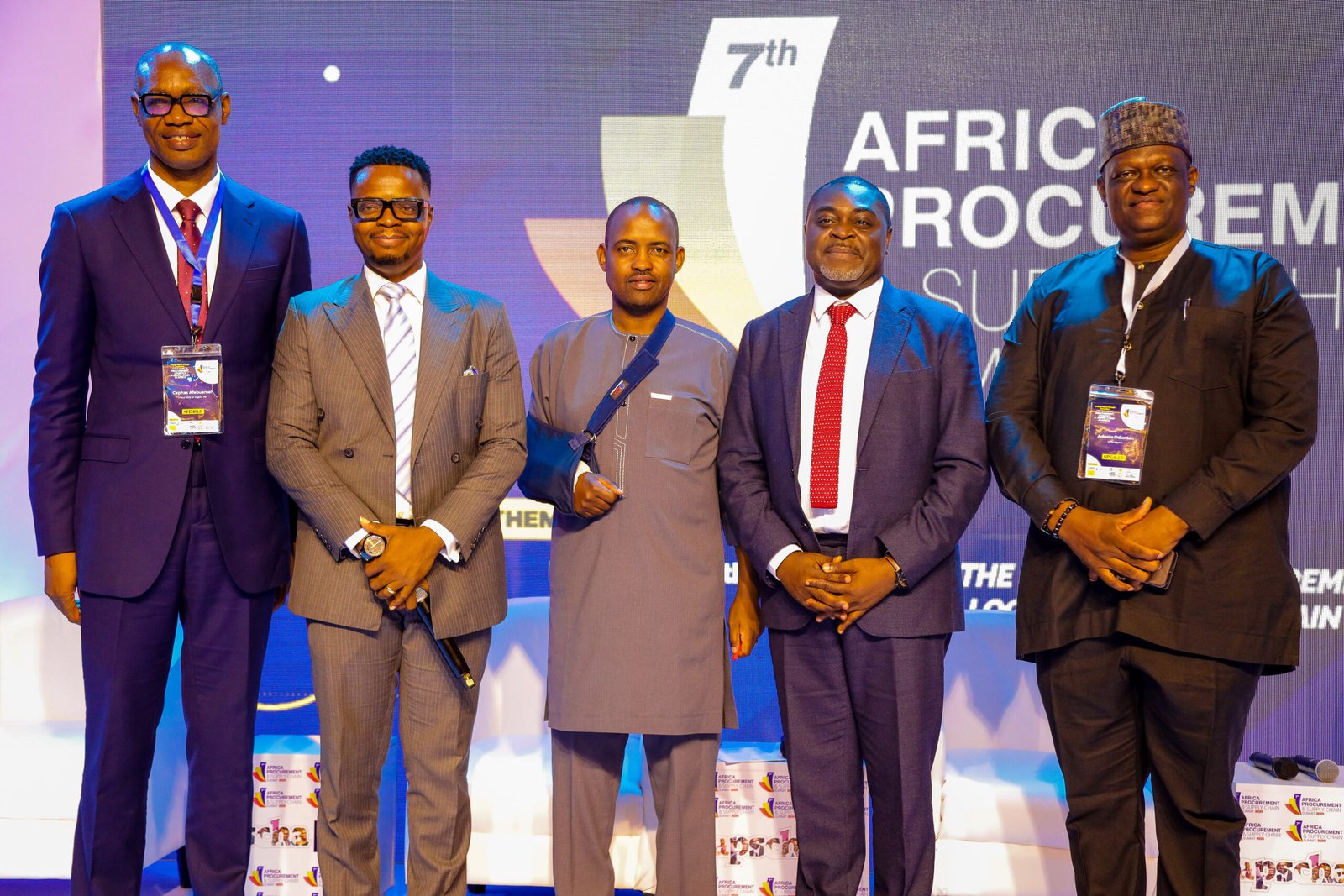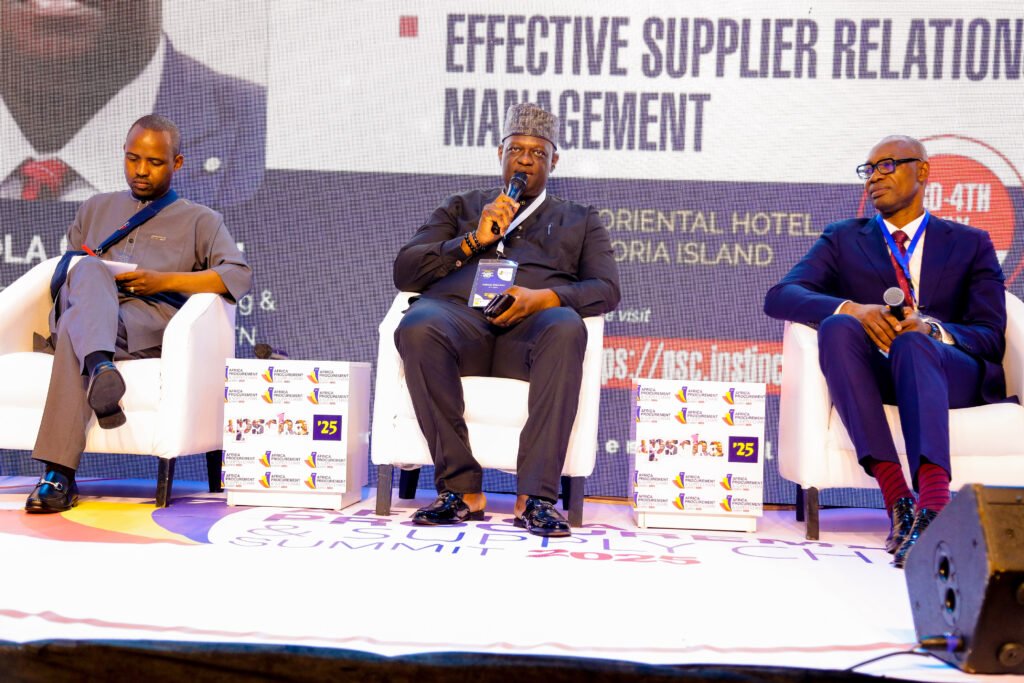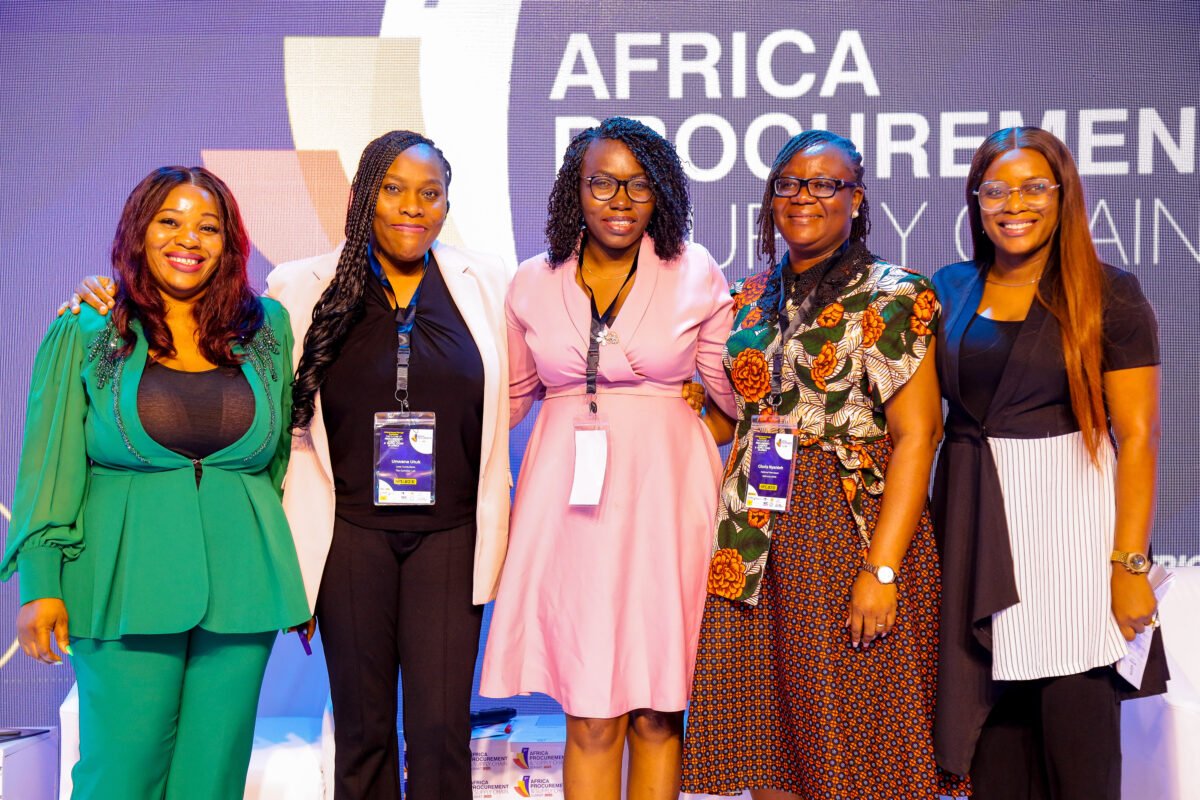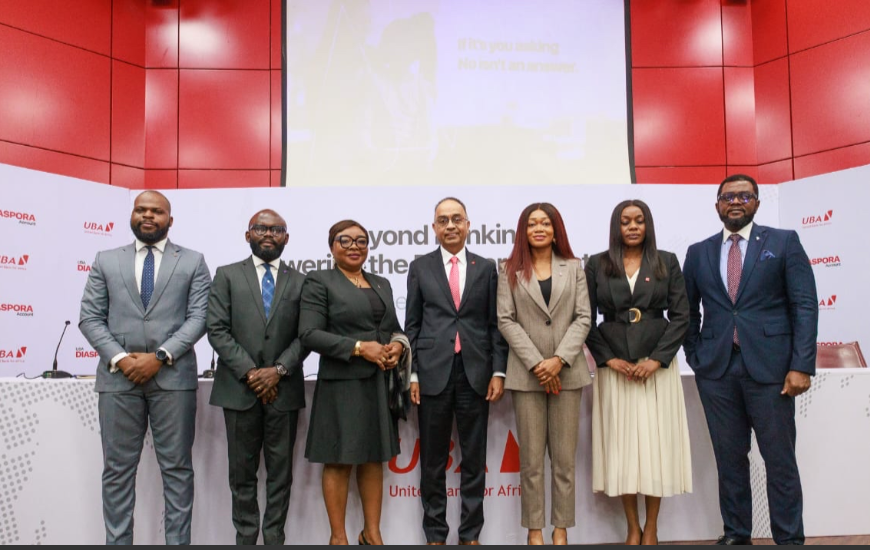

7th Africa Procurement Summit: Experts share keys to strong supplier relationships
Industry leaders shared transformative strategies for supplier relationship management during a dynamic panel discussion at the 7th Africa Procurement and Supply Chain Summit, held on July 3, 2025, at the Oriental Hotel in Victoria Island, Lagos,
Organized by InstinctWave, the event themed “Driving Impact through Innovation” convened industry experts, government officials, and professionals to shape the future of procurement across the continent.
The first panel sesssion, themed “Effective Supplier Relationship Management,” convened experts including Adeola Oduntan (General Manager, Global Sourcing & Supply Chain Management, MTN Nigeria), Cephas Afebuameh (Group Director, Supply Chain, Flour Mills of Nigeria Plc), and Dr. John Ngeno (General Manager, Supply Chain & Logistics, Kenya Power).
ALSO READ: INSTINCTBUSINESS CEO OF THE WEEK: OBEDI LAISER, CEO/MD , ABSA BANK TANZANIA.
They shared their insights which addressed critical questions on building supplier confidence, enhancing resilience, and overcoming supply chain challenges.

Building Long-Term Supplier Confidence
Oduntan emphasized collaboration as a cornerstone of MTN Nigeria’s supplier strategy. “We call suppliers partners, creating a win-win environment,” Oduntan said, highlighting how MTN fosters mutual growth beyond mere cost savings. He cited their recent $150 million data center project, where the procurement team collaborated closely with suppliers, aiding foreign partners with local logistics and port clearance. “This partnership approach ensures we grow together,” he added, earning applause for MTN’s inclusive model.
Enhancing Resilience in Supply Chains
Afebuameh outlined a proactive approach to resilience, starting with rigorous risk assessments. “We incessantly assess our systems to identify vulnerabilities and anticipate what can go wrong,” he explained. Strategies like on-shoring and investing in local agriculture reduce dependency on imports, while talent development and “just-in-case” planning mitigate disruptions. Afebuameh stressed transparent communication and strategic spending to avoid “expensive solutions that are no solution,” underscoring Flour Mills’ commitment to robust supplier relationships since its founding in 1960.
Overcoming Supply Chain Challenges
Dr Ngeno tackled challenges like long lead times and import dependency by promoting local manufacturing. “We link local suppliers with manufacturers in India and China, providing engineers to develop Kenyan brands,” he said, noting a push for 40% local content. Ngeno highlighted initiatives like supplier enablement departments and tripartite contracts with banks to ensure financial support, reducing documentation barriers and boosting participation from youth and women. “We don’t just give contracts; we follow suppliers to ensure success,” he affirmed.


















